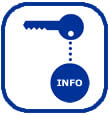 Individual Assignments
Individual Assignments
Key Information
Use the exemplars of individual assignments as guidelines for grading with the Assignment Rubric. Names have been changed to protect student privacy.
- Sample Assignment Prompt
- Developing Exemplar
- Proficient Exemplar
- Exemplary Exemplar
- Feedback for Assignments
Assignment Prompt
The exemplars were submitted in response to this assignment prompt in the PLS online course Differentiated Instruction for Today's Classroom®.
- Read Facilitation and Collaboration and Classroom Environment Research References in Key Information.
- What concepts did you find most meaningful in the reading? Explain why, supporting your reasons with research citations.
Classroom Environment Research References
This is an excerpt from the Key Information in the DI course. Full citations are available in the DI syllabus.
Research shows that:
- Classroom environments that support student autonomy tend to enhance intrinsic motivation and self-determination (Pelletier, Séguin-Lévesque, & Legault, 2002). These researchers found that the more self-determined teachers were in their jobs, the more they encouraged autonomy in their students.
- Classrooms that promote student autonomy and choice increase situational interest and intrinsic motivation (Deci 1992). Research by Flowerday (2000) revealed that students given a choice of which text to read experienced an increase in situational interest, even though their initial personal interest in the topic was low.
- Intrinsic motivation decreases when teachers and parents frustrate a child’s need for autonomy (Brophy, 2004). For example, junior high students who were given opportunities to make decisions at home and at school developed higher levels of intrinsic interest in schoolwork. Autonomy-supportive learning climates help students become more dedicated and engaged learners (Vansteenkiste et al., 2004).
- All else being equal, when given a choice between two tasks differing in difficulty, the normal tendency is to select the one requiring the less effort (Billington & Ditommaso, 2003). Differentiation strives to attain a balance between student-selected and teacher-selected learning activities (Hall, 2002).
- Teaching students self-management skills has significant benefits, including decreasing attention difficulties and increasing time-on-task (Knapczyk, 2004). Cooper, Horn, and Strahan (2005) stress the importance of teachers modeling appropriate self-regulation and self-monitoring behaviors.
- Students’ metacognitive competencies are more effective than intelligence in predicting learning performance (Veenman & Spaans, 2005). Evidence suggests that metacognitive skills don’t take root much before the age of 11 or 12 (Veenman, Wilhelm, & Beishuizen, 2004).
- Students can learn cognitive strategies to increase their anger control and to decrease inappropriate responses to anger (Smith & Miller, 2002). Monastra (2005) reviews a body of research indicating that impulsive behavior can be effectively restrained with appropriate training. Self-monitoring accompanied by feedback from an adult can effectively help children exercise greater self-control (Freeman & Dexter-Mazza, 2004).
